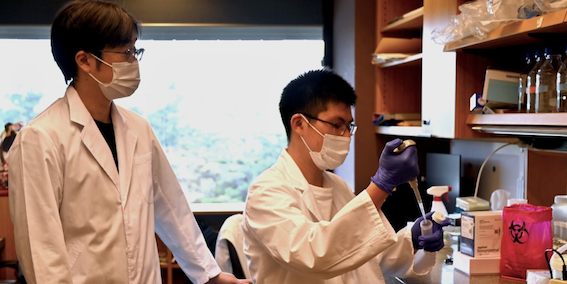
Scientists in Japan have revealed a chemical compound that could be used for the treatment of various autoimmune diseases like multiple sclerosis and rheumatoid arthritis.
These diseases occur when the body’s immune response goes wiry. The immune system, which normally attacks pathogens and infections, instead attacks healthy cells and tissues.
For the millions of people who suffer from autoimmune diseases worldwide, the result can be debilitating—rheumatoid arthritis causes excessive joint pain, while multiple sclerosis can disable one’s brain and spinal cord function.
“The key to the development of autoimmune diseases, and thus the way to inhibit this development, lies in our cells, but the underlying mechanism has always been unclear,” stated Prof. Hiroki Ishikawa, who leads the Immune Signal Unit at the Okinawa Institute of Science and Technology (OIST). “Now, our recent research has shed light on a compound that could suppress the development of these diseases.”
The research focused on T helper 17 cells, or Th17 cells. Th17 cells are a type of T cell—a group of cells, which form major parts of the immune system. The generation of Th17 cells requires glycolysis, a metabolic process in which glucose is broken down and converted to energy to support the metabolic needs of cells.
The researchers found that treatment with phosphoenolpyruvate or PEP can inhibit the maturation of TH17 cells, leading to resolution of inflammatory response. PEP treatment inhibits the generation of Th17 cells by blocking JunB activity. A protein called JunB is essential for the maturation of Th17 cells
Armed with this knowledge, the researchers went on to treat mice that had neuroinflammation caused by autoimmunity with PEP. This disease is very similar to multiple sclerosis and these mice showed positive signs of recovery. The scientists have now filed a patent to continue with this research.




